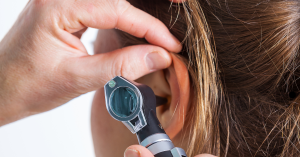Hearing loss is a natural part of aging, but that doesn’t mean it’s inevitable—or irreversible. Many people begin to notice subtle changes in their hearing as they reach their 50s and beyond, whether it’s difficulty following conversations in noisy places or needing to turn the TV volume higher than usual. While technology like hearing aids and implants offers remarkable benefits, there are also natural, proactive steps you can take to support your hearing health every day.
In this article, we’ll explore seven proven ways to improve your hearing naturally and effectively. These strategies focus on lifestyle choices, dietary habits, and wellness practices that can enhance ear function and help prevent further decline. Whether you’re looking to maintain your current level of hearing or make small improvements, these tips are practical, accessible, and grounded in science. Let’s dive into how you can protect and potentially improve your hearing—naturally.
Maintain a Healthy Diet to Support Ear Health
What you put on your plate doesn’t just affect your heart or waistline—it can also play a crucial role in how well you hear. Nutrients like magnesium, potassium, folic acid, zinc, and vitamins A, C, and E are essential for maintaining the delicate structures of the inner ear and supporting proper nerve function. A balanced diet helps improve blood flow to the ears, reduces inflammation, and combats oxidative stress, which can damage hearing over time.
Key Nutrients for Hearing
- Magnesium: Helps protect against noise-induced hearing loss by improving blood flow and regulating nerve function in the auditory system.
- Folic Acid: Essential for cell regeneration and circulation, folic acid may help slow age-related hearing loss.
- Zinc: Strengthens the immune system and helps ward off infections that can impair hearing.
- Potassium: Aids in fluid balance in the inner ear, crucial for translating sound into electrical signals the brain can interpret.
- Omega-3 Fatty Acids: Found in fish like salmon and sardines, omega-3s have anti-inflammatory properties and may reduce the risk of hearing loss.
Foods to Add to Your Diet
- Leafy greens (spinach, kale): Rich in folate and antioxidants
- Bananas, oranges, and potatoes: Great potassium sources
- Nuts and seeds: Excellent for magnesium and zinc
- Fatty fish like salmon and mackerel: High in omega-3s and vitamin D
- Berries and citrus fruits: Packed with vitamin C and other antioxidants
What to Avoid
- High-sodium foods: Can raise blood pressure and restrict blood flow to the ears
- Excessive sugar and processed foods: May contribute to inflammation and negatively affect nerve health
- Alcohol in excess: Can impair central auditory processing and reduce folate levels
Improving your hearing through diet doesn’t happen overnight, but consistent, nutritious eating can help preserve your auditory system and support overall wellness. Think of it as a long-term investment in your hearing health—one meal at a time.
Practice Regular Ear Hygiene the Right Way
Proper ear hygiene is one of the simplest and most overlooked ways to support better hearing. While it’s tempting to grab a cotton swab to clean your ears, doing so can actually push earwax deeper into the canal, potentially causing blockages, irritation, or even damage to the eardrum. Instead, understanding how the ear naturally cleans itself and adopting safe hygiene habits can go a long way in maintaining auditory health.
The Role of Earwax
Earwax, or cerumen, may seem unpleasant, but it plays an essential protective role. It traps dust, dirt, and microorganisms, preventing them from reaching deeper into the ear canal. It also has antibacterial properties and keeps the ear canal lubricated, reducing the risk of dryness and itching.
Safe Cleaning Techniques
- Use a damp cloth: Gently wipe the outer ear after bathing to remove visible wax.
- Ear drops or saline solution: Over-the-counter drops can soften wax and help it move out naturally. A saline rinse can also be effective.
- Ear irrigation (only when advised): Sometimes performed by professionals, irrigation uses a gentle water stream to remove buildup—but it’s not suitable for everyone.
What to Avoid
- Cotton swabs or “ear candling”: These can cause more harm than good, potentially leading to impacted wax or injury.
- Inserting any objects into the ear canal: This includes hairpins, pens, or fingers. These habits can damage the delicate lining of the ear.
When to See a Professional
If you experience hearing muffled sounds, ear fullness, itching, or pain, it could be a sign of wax buildup or infection. A hearing care professional or ENT specialist can safely examine your ears and perform professional cleaning if needed. In some cases, earwax-related hearing loss can be quickly reversed with treatment.
Maintaining healthy ear hygiene supports clearer hearing and can prevent conditions that lead to temporary hearing loss or discomfort. It’s a small habit with a big payoff for your auditory health.
Exercise to Improve Blood Flow to the Ears
Staying physically active isn’t just good for your heart, lungs, or muscles—it’s also beneficial for your ears. Regular exercise helps improve circulation, which ensures that the tiny, delicate structures of the inner ear receive the oxygen and nutrients they need to function properly. Better blood flow can help maintain nerve health and potentially slow age-related hearing decline.
Why Circulation Matters for Hearing
The cochlea, a spiral-shaped part of the inner ear responsible for converting sound into nerve signals, relies on a constant supply of oxygen-rich blood. Poor circulation, often caused by conditions like high blood pressure, diabetes, or sedentary lifestyles, can restrict this flow and impair the function of hair cells in the cochlea. Once these cells are damaged, they do not regenerate—so keeping them healthy through exercise is a proactive way to protect your hearing.
Recommended Exercises
- Walking or brisk walking: A low-impact way to boost circulation without putting strain on joints. Even 30 minutes a day can make a difference.
- Yoga and stretching: Helps reduce stress (which can exacerbate tinnitus) while promoting overall circulation and balance—important for inner ear health.
- Swimming or water aerobics: These are especially good for older adults as they are gentle on the body while providing full-body cardiovascular benefits.
- Tai Chi or balance exercises: These not only promote blood flow but also help with spatial orientation and balance, both connected to inner ear function.
Exercise Tips for Hearing Health
- Stay hydrated to help your circulatory system work efficiently.
- Avoid exercising in noisy environments without ear protection (like loud gyms or near construction).
- Start gradually if you’re not used to regular physical activity—consistency is key, not intensity.
Caution: Know Your Limits
If you have cardiovascular issues or are recovering from surgery or illness, consult a doctor before beginning a new exercise routine. Safe, moderate movement is the goal, and any improvement in circulation can positively affect your hearing system.
By incorporating regular physical activity into your lifestyle, you’re not only supporting your overall health but also taking an active step toward preserving and potentially improving your hearing over time.
Train Your Brain with Hearing Exercises
Hearing isn’t just about your ears—your brain plays a central role in processing the sounds you hear. In fact, many people with hearing loss report that their main struggle isn’t detecting sound, but understanding speech, especially in noisy environments. That’s because the brain needs to decode and make sense of what the ears pick up. The good news? Just like any muscle, the brain can be trained to become sharper at recognizing, filtering, and interpreting sounds.
How Auditory Training Works
Auditory training involves exercises that challenge your brain to improve how it processes sound. These exercises can enhance skills like speech discrimination, sound localization, and memory for spoken information. Over time, this kind of “ear-brain coordination” training can make conversations clearer and less mentally exhausting.
Effective Hearing Exercises
- Listening to audiobooks or podcasts: Especially helpful when you follow along with the text, which reinforces word recognition.
- Sound matching games: Apps and online tools that ask you to identify and match different sounds can sharpen auditory focus.
- Speech-in-noise training: These programs simulate noisy environments and help your brain learn to focus on target voices.
- Music listening: Learning to distinguish instruments, rhythms, and lyrics helps fine-tune your auditory system. Classical and jazz can be especially useful due to complex structures.
Helpful Apps and Programs
- LACE (Listening and Communication Enhancement): A scientifically designed program to improve listening skills in challenging environments.
- Hear Coach: A free app with listening games designed by hearing experts.
- Elevate or Lumosity: While not hearing-specific, these brain-training apps improve focus and memory, which can support auditory processing.
Everyday Habits to Strengthen Hearing
- Practice focused listening: Tune in to a single voice in a crowd, such as at a family dinner or a busy café.
- Repeat back conversations mentally: Helps improve auditory memory.
- Challenge yourself with new environments: Regular exposure to different sound settings can keep your brain flexible and adaptable.
Over time, training your brain to become a better listener can lead to noticeable improvements in how you hear and understand the world around you—especially when combined with other healthy hearing habits.
Reduce Noise Exposure in Daily Life
One of the most effective—and often overlooked—ways to protect and improve your hearing is by reducing your exposure to excessive noise. Everyday environments like city streets, concerts, loud restaurants, or even lawn equipment can subject your ears to harmful decibel levels. Over time, repeated noise exposure can lead to noise-induced hearing loss, a permanent and preventable condition.
Why Loud Sounds Are Harmful
Inside your inner ear are tiny hair cells that respond to sound vibrations. When exposed to loud noises, these cells can become damaged or destroyed. Unlike other cells in the body, once these hair cells are gone, they don’t grow back—making hearing loss permanent. Protecting them is essential to preserving hearing ability.
Everyday Sources of Noise to Watch Out For
- Traffic and public transportation
- Headphones at high volume
- Construction sites or power tools
- Sporting events and concerts
- Home appliances like blenders or vacuum cleaners
How to Reduce Exposure
- Use hearing protection: Wear earplugs or earmuffs in loud settings. There are even discreet, high-fidelity earplugs for music lovers.
- Turn down the volume: Follow the 60/60 rule—listen at no more than 60% volume for no more than 60 minutes at a time when using headphones.
- Create quiet spaces: Give your ears a break by spending time in quiet environments throughout the day.
- Choose quieter devices: When purchasing appliances, look for models with lower noise ratings.
Safe Listening Habits with Technology
- Noise-canceling headphones: These reduce the need to turn up volume in noisy environments.
- Volume limit settings: Enable volume limiters on smartphones or tablets, especially for children or older adults.
- Regular “ear rest” periods: Just as your eyes need a break from screens, your ears benefit from rest after periods of sound exposure.
By being mindful of how much noise your ears are exposed to daily, you can prevent further damage and give your auditory system a better chance to perform well for years to come. Small changes in your daily habits can lead to big benefits in your long-term hearing health.
Manage Stress and Improve Sleep Quality
You might not immediately connect stress and sleep with hearing health, but both play a surprisingly powerful role in how well your auditory system functions. Chronic stress and poor sleep can lead to inflammation, restricted blood flow, and even worsen conditions like tinnitus—that persistent ringing or buzzing in the ears. Learning to manage stress and prioritize restful sleep can help support better hearing and overall well-being.
How Stress Affects Hearing
Stress triggers the release of cortisol and adrenaline, hormones that prepare the body for “fight or flight.” While useful in short bursts, prolonged stress keeps these levels high, which can:
- Constrict blood vessels, limiting circulation to the inner ear
- Disrupt neural processing of sound
- Increase perception of tinnitus or ear fullness
- Heighten sensitivity to sound (hyperacusis)
Some individuals even experience sudden hearing loss as a result of acute stress events, often requiring immediate medical attention.
Sleep and Auditory Health
Sleep is when the body restores and repairs itself—including the systems that process sound. Inadequate or poor-quality sleep can:
- Impair auditory nerve function
- Reduce brain efficiency in decoding speech
- Exacerbate tinnitus or hearing fatigue
- Weaken the immune system, making you more vulnerable to ear infections
Simple Ways to Reduce Stress and Sleep Better
- Meditation and deep breathing: Just 10 minutes a day can reduce cortisol levels and promote calm.
- Physical activity: Exercise is a natural stress reliever and helps regulate sleep cycles.
- Establish a bedtime routine: Aim for 7–9 hours of sleep with consistent sleep and wake times.
- Limit caffeine and screen time before bed: Both can interfere with your ability to fall and stay asleep.
- Sound therapy or white noise machines: Can improve sleep quality and reduce tinnitus awareness at night.
Consider Cognitive Behavioral Therapy (CBT)
CBT has shown strong results for people suffering from stress-related hearing issues, especially tinnitus. It helps reframe negative thoughts and teaches coping techniques that lower anxiety and improve mental clarity.
Reducing stress and improving your sleep doesn’t just help you feel better—it supports your ears and brain in processing sound more effectively. Think of it as creating the ideal environment for your hearing system to thrive.
Consider Natural Supplements for Hearing Support
While no pill can “cure” hearing loss, some natural supplements have shown potential in supporting ear health and possibly slowing the progression of hearing decline—especially when paired with healthy habits. These supplements work by promoting better circulation, reducing inflammation, and protecting nerve cells in the auditory system.
Evidence-Backed Supplements for Hearing Health
- Magnesium: Known to protect the inner ear from damage caused by noise exposure. It helps improve blood flow and stabilize nerve function.
- Ginkgo Biloba: Widely studied for its circulation-enhancing properties, ginkgo may help manage tinnitus and support hearing by improving blood flow to the inner ear and brain.
- Zinc: Supports immune function and may help prevent ear infections. Deficiency has been linked to hearing problems, especially in older adults.
- Omega-3 Fatty Acids: Anti-inflammatory compounds that may reduce the risk of age-related hearing loss. Found in fish oil or algae-based supplements.
- Folic Acid (Vitamin B9): Important for cell repair and blood flow. Studies suggest it may slow the onset of hearing loss in older adults.
- Vitamin D: Low levels have been linked to sudden hearing loss. It also supports overall immune and bone health, including the tiny bones in the ear.
Choosing the Right Supplements
- Look for third-party testing: Choose brands verified by organizations like USP, NSF, or ConsumerLab.
- Avoid megadoses: More isn’t always better—stick to recommended daily values unless advised otherwise.
- Check for interactions: Some supplements can interfere with medications, including blood thinners or blood pressure drugs.
Speak to a Professional First
Before starting any supplement routine, consult with a healthcare provider—especially if you have existing health conditions or take prescription medications. A doctor or audiologist may recommend blood tests to identify specific deficiencies that could impact your hearing health.
Supplementing, Not Replacing
Supplements should never replace a healthy diet or lifestyle. Think of them as support tools—they can enhance what you’re already doing through good nutrition, exercise, and noise management.
While results vary from person to person, incorporating the right supplements into your daily routine could offer an added layer of protection for your hearing, especially as part of a broader, proactive health plan.
Conclusion
Hearing is one of our most vital senses—it connects us to loved ones, the environment, and the rhythm of everyday life. While some hearing loss is part of the natural aging process, it doesn’t mean you’re powerless. As we’ve explored in this guide, there are several proven, natural strategies you can use to support and potentially improve your hearing health.
From nourishing your body with the right foods and staying physically active, to training your brain, protecting your ears from loud noise, and even managing stress and supplementing smartly, every small action adds up. The key is consistency and mindfulness—treating your hearing as an essential part of your overall wellness.
It’s never too early—or too late—to start caring for your ears. Whether you’re beginning to notice changes or simply want to stay ahead, these practical tips can help you preserve your hearing and enjoy better quality of life.
So take the first step today. Your future self—and your ears—will thank you.
FAQ
Can hearing loss be reversed naturally?
Most types of hearing loss, especially sensorineural (age-related or noise-induced), are permanent and cannot be reversed naturally. However, certain forms—such as hearing loss due to earwax buildup, infections, or circulatory issues—can be improved or managed with natural methods and medical treatment. Healthy lifestyle choices can also help slow progression and preserve existing hearing.
What vitamins are best for hearing health?
Key vitamins that support hearing include magnesium, folic acid (B9), zinc, omega-3 fatty acids, and vitamin D. These nutrients help improve blood flow, protect auditory nerves, and reduce inflammation in the ear. Always consult your doctor before starting any supplement regimen.
Is it safe to clean my ears at home?
Yes, but with caution. Avoid inserting cotton swabs or objects into the ear canal. Instead, use a damp cloth to clean the outer ear, or apply over-the-counter ear drops to soften wax. If you suspect wax buildup or blockage, it’s best to see a healthcare professional for safe removal.
How loud is too loud?
Sounds above 85 decibels (like busy traffic, concerts, or power tools) can damage hearing if exposure is prolonged. If you have to raise your voice to be heard, the noise level may be harmful. Wearing ear protection and limiting time spent in noisy environments are key steps to reduce risk.
Are there exercises to help with hearing?
Yes. Auditory training exercises, such as speech-in-noise games, listening to audiobooks, or sound recognition apps, can help sharpen your brain’s ability to process sounds. These activities are especially helpful for those who struggle with understanding speech or filtering background noise.






